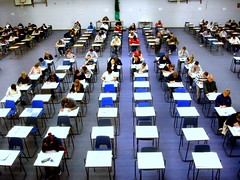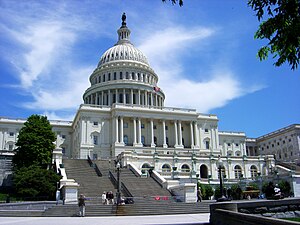 Image by noyava via Flickr
Image by noyava via Flickr
Before the 2004 reauthorization changes took effect (on July 1, 2005), the only qualification for a due process hearing officer under the Individuals with Disabilities Education Act was that the hearing officer not be an employee of the State Education Department or the school district. (old) § 615 (f)(3); and that he not have a personal or professional interest that would conflict with objectivity, 34 C.F.R. Section 300.508(a)(2)(old regs). The reauthorization added three more qualifications for due process hearing officers. The following new qualities were required for a special ed hearing officer: the knowledge and ability to conduct hearings in accordance with standard legal practice; the knowledge and ability to write decisions in accordance with standard legal practice; knowledge of and ability to understand special education law. Section 615 (f)(3)(A)(ii)-(iv); 34 C.F.R. § 300.511(c).
So what is your opinion, are these qualifications enough to be a good hearing officer? Is more needed? On the other hand, would we be lucky to find a trial court judge on any given day who met these criteria? What do you say?
![Reblog this post [with Zemanta]](http://img.zemanta.com/reblog_e.png?x-id=9cf394ed-98ce-4a9c-b3e9-c324ed947bca)


![Reblog this post [with Zemanta]](http://img.zemanta.com/reblog_e.png?x-id=4ba4b8f7-96e3-42e5-821b-02f1208f9c4c)

![Reblog this post [with Zemanta]](http://img.zemanta.com/reblog_e.png?x-id=0ad58aad-009b-4df2-92d4-1c6a4b06979a)


![Reblog this post [with Zemanta]](http://img.zemanta.com/reblog_a.png?x-id=97fae34e-add4-4828-b1fe-45de80e90315)


![Reblog this post [with Zemanta]](http://img.zemanta.com/reblog_e.png?x-id=0fce4144-7b50-45c5-bb18-8ce66a8397f5)

![Reblog this post [with Zemanta]](http://img.zemanta.com/reblog_e.png?x-id=b4e0ecf1-677f-4eaa-9c2f-506383c947ca)


![Reblog this post [with Zemanta]](http://img.zemanta.com/reblog_e.png?x-id=e3d74584-a3ef-4412-82f4-f59a62147946)


![Reblog this post [with Zemanta]](http://img.zemanta.com/reblog_a.png?x-id=6a7cb6c7-0643-4022-8219-ea0e838fcf19)

